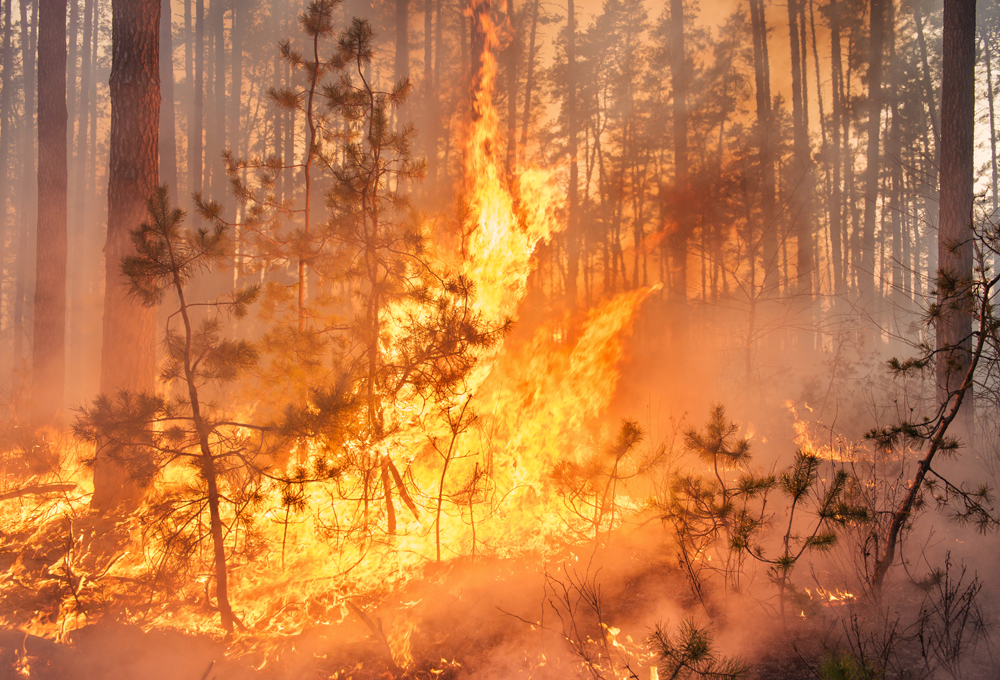Solutions to Disasters Are Just a Page Turn Away

Summer is always a hard time for disasters, but this year’s news cycle has, for several reasons, been particularly catastrophic. When there’s not a hurricane, there’s a wildfire. When there’s not a wildfire, there’s a game of nuclear chicken happening across the Pacific. It makes a reader want to fall over and twitch.
And yet, these stories aren’t the real disasters. Those, we don’t hear about so much. They’re too abstract, too difficult to address. Too sustained. If our problems were dragons, these would be the ones too big to slay in one go, the ones that don’t bother eating heroes because the heroes are the size of bugs in comparison. And they all boil down to one astronomically big problem, the god of all problems: ignorance.
Ignorance is a disaster. It costs untold trillions of dollars a year in health care. People join extremist groups because of ignorance that fuels frustration that fuels rage and hate. Ignorance led us right to the door of catastrophic global climate change and then left us there, laughing its evil head off.
Ignorance isn’t something you have, it’s something that has you —usually for breakfast. But, unlike a Harvey or an Irma or a Maria, ignorance is a problem that we can mitigate. We can do so with––you guessed it—more libraries.
In the sense that they battle ignorance, libraries have been in the disaster mitigation business since the days when the death of the village storyteller was a legitimate educational catastrophe. Today, our smaller day-to-day problems are more rarefied and stranger: the cycle of poverty, the urgent need for a fax machine, a flurry of severe storms knocking out the magic fire that holds up civilization.
So now libraries provide air conditioning and cell phone charging after hurricanes. They open even when they themselves are crippled by weather. But the ultimate disaster still looms.
The world is full of places where the literacy rate—never mind the number of open libraries—is profoundly low. Intellectual poverty takes over in places where there are few libraries because nobody has the money to start them. Whether that system starts with the chicken or the egg, the best way to solve it seems to be opening library doors. In many cases, this effort must come from outside of the area, from a place with more money. This is the impetus behind the work of the two intrepid employees of The World is Only a Book Away, plus a group of earnest, deep-pocketed celebrities.
According to its Guidestar profile, The World is Only a Book Away was founded in 2011. Since then, according to founder James Owens, it has brought books to some 70,000 children in three countries by building ninety libraries and accompanying community partnerships in those places. The upcoming eponymous book,, includes contributions by Nobel laureates and the Dalai Lama.
The book has been in the works for a long time, and Owens claims that it was the book that spurred the creation of the organization. Initially, he was just a guy who loved to read. The book is full of stories of what reading means to its celebrity contributors, and Owens still feels that its main purpose is to inspire people to read broadly.
However, the very process of looking into reading led to his looking into literacy, and soon he had a full-blown charity on his hands. “In the process [of creating the book,] I was struck by the thought that something even more powerful than the book itself was possible if I tapped into the collective energy of people involved with the book,” he explains. “This, in turn, inspired me to launch…The World is Just a Book Away.”
I haven’t read the book. I have no idea if it’s any good. (It looks good. I’d read something by the Dalai Lama.) What I do know is that a couple of dedicated, empowered people really can punch above their weight in a disaster situation. What I know is that public libraries find themselves in a difficult and thankless position in their communities every day, hurricanes notwithstanding. We deal with difficult people in bad situations, with budget cuts and idiotic jabs at our supposed obsolescence, and an endless litany of the same three questions about how to use the public printer. It’s easy to forget that we’re fighting a fire.
That is what brings me back to WIJABA. Sure, it’s Hollywood. Liam Neeson is a sponsor, Jane Goodall has a blurb on their website. But it tacitly acknowledges the root of why there are libraries, the ongoing tragedy of illiteracy in corners of the world that money and fortune tend to forget about. It acknowledges that one way to pull disaster out by the roots is to have a library—a system, a building, a cart and horse, whatever. As long as it has words that children can learn to read and that adults can use to inform their worlds, it will achieve an effect.
Humans can’t stop the wind from blowing, but we can build libraries, and maybe that’s the next best thing.
To donate the the American Library Association’s Disaster Relief fund, click here..
To donate to the Florida Library Association’s disaster relief fund, click here.
To donate to the Texas Library Association’s disaster relief fund, click here.
To donate to Puerto Rico’s reconstruction, click here and select an organization.

Anna Call is a reference librarian at the Nevins Memorial Library in Methuen, Massachusetts. Follow her on Twitter @evil_librarian.
Anna Call
